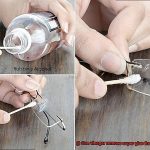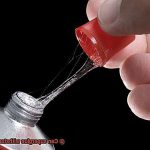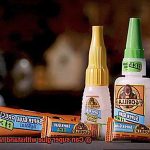Have you ever stopped to ponder whether super glue could actually burst into flames?
It’s a peculiar idea, isn’t it? We usually associate super glue with its remarkable ability to bond things together, not its potential for combustion.
But here’s the kicker: super glue is composed of chemicals that can indeed catch fire under specific circumstances. While it may not explode like gasoline or dynamite, the fact that super glue has the potential to ignite raises some captivating questions about its safety and the precautions we should take when handling it.
So fasten your seatbelts and get ready for an enthralling journey into the fiery side of super glue.
Does Super Glue Ignite?
Contents
Super glue, also known as cyanoacrylate adhesive, is a versatile and fast-bonding adhesive that has gained popularity for its ability to create strong bonds quickly. However, concerns about its flammability have raised questions among users. In this comprehensive guide, we will delve into the scientific aspects of super glue, explore the potential fire hazards associated with it, and provide essential guidelines to ensure safe usage.
The Science behind Super Glue:
Super glue contains cyanoacrylate monomers that undergo rapid polymerization when exposed to moisture. This chemical reaction forms a powerful bond between surfaces. Although the adhesive itself is not flammable, it releases fumes that can be potentially hazardous if ignited.
Understanding the Fire Hazard:
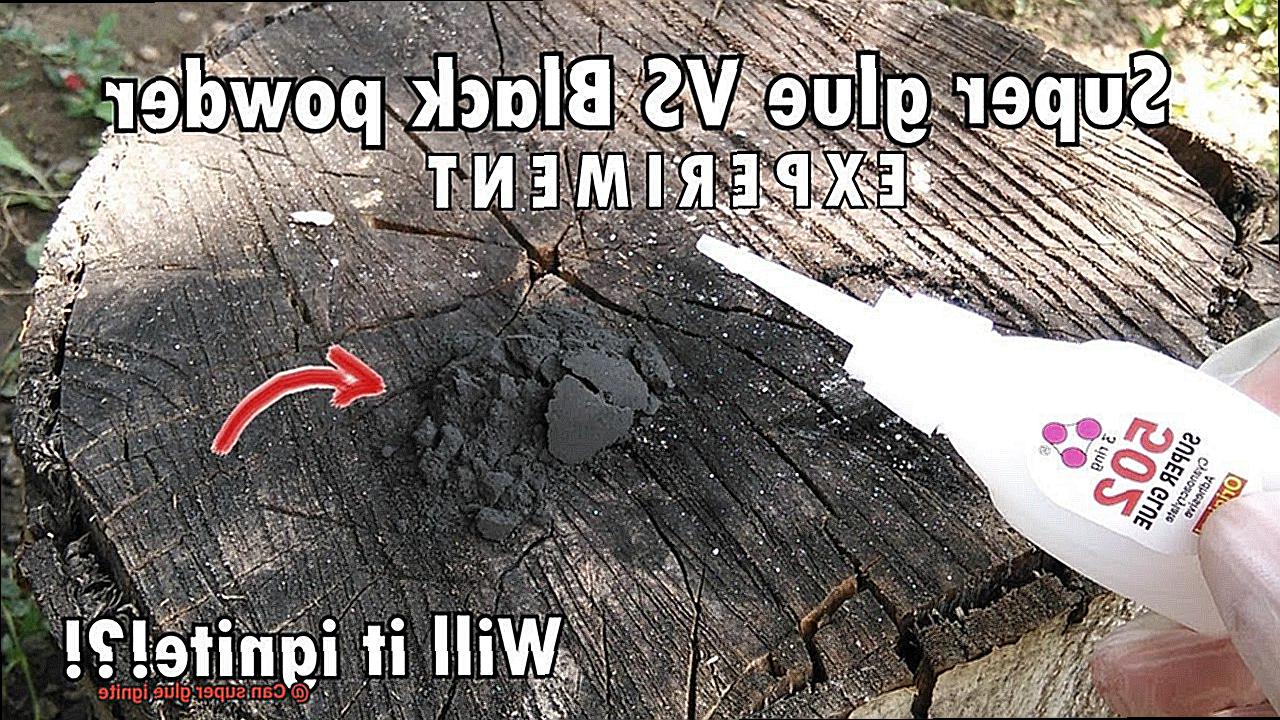
- Fume Flammability: Super glue fumes are released when the adhesive comes into contact with moisture or water vapor in the air. Depending on the specific formulation and additives present, these fumes can be flammable.
- Ignition Sources: To ignite, super glue fumes require exposure to open flames, hot surfaces, or electrical equipment. Therefore, it is crucial to avoid using super glue near potential ignition sources.
Precautions for Safe Usage:
- Adequate Ventilation: Always work in well-ventilated areas to minimize the concentration of super glue fumes in the air. Open windows or utilize fans to ensure proper airflow during usage.
- Avoid Flammable Materials: Keep super glue away from flammable substances such as gasoline or other volatile materials that could act as accelerants and increase the risk of fire.
- Proper Storage: Store super glue in a cool and dry place, away from heat sources or direct sunlight. Ensure the container is tightly sealed to prevent evaporation and maintain product integrity.
- Personal Protective Equipment (PPE): Protect yourself by wearing safety goggles and gloves when using super glue to safeguard your eyes and skin from potential irritation.
What are the Chemical Properties of Super Glue?
In this blog post, we’ll explore the science behind this popular adhesive, including its rapid polymerization, impressive adhesion, chemical resistance, and the potential fire hazards associated with its use. Get ready for a fascinating journey into the world of super glue.
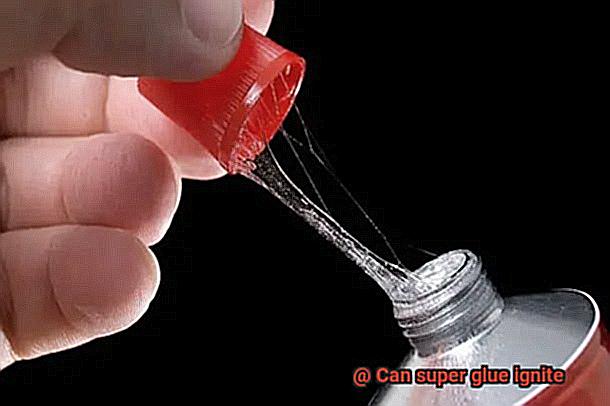
Rapid Polymerization:
Super glue’s key chemical property lies in its rapid polymerization process. When exposed to moisture, the cyanoacrylate molecules in the glue react quickly and form long chains of plastic-like material. This reaction happens within seconds, allowing you to bond objects together in a flash. Next time you marvel at how fast super glue dries, remember it’s all thanks to this speedy polymerization phenomenon.
Low Volatility:
Unlike some other adhesives that evaporate quickly, super glue possesses low volatility. This means it doesn’t readily vaporize at room temperature. The advantage of this property is that your super glue remains stable and effective for longer periods. No need to worry about your adhesive vanishing into thin air.
Impressive Adhesion:
Super glue is famous for creating strong bonds between various materials. Its impressive adhesion can be attributed to its chemical composition. The glue contains polar functional groups like carbonyl and nitrile groups that interact with the surfaces being bonded.
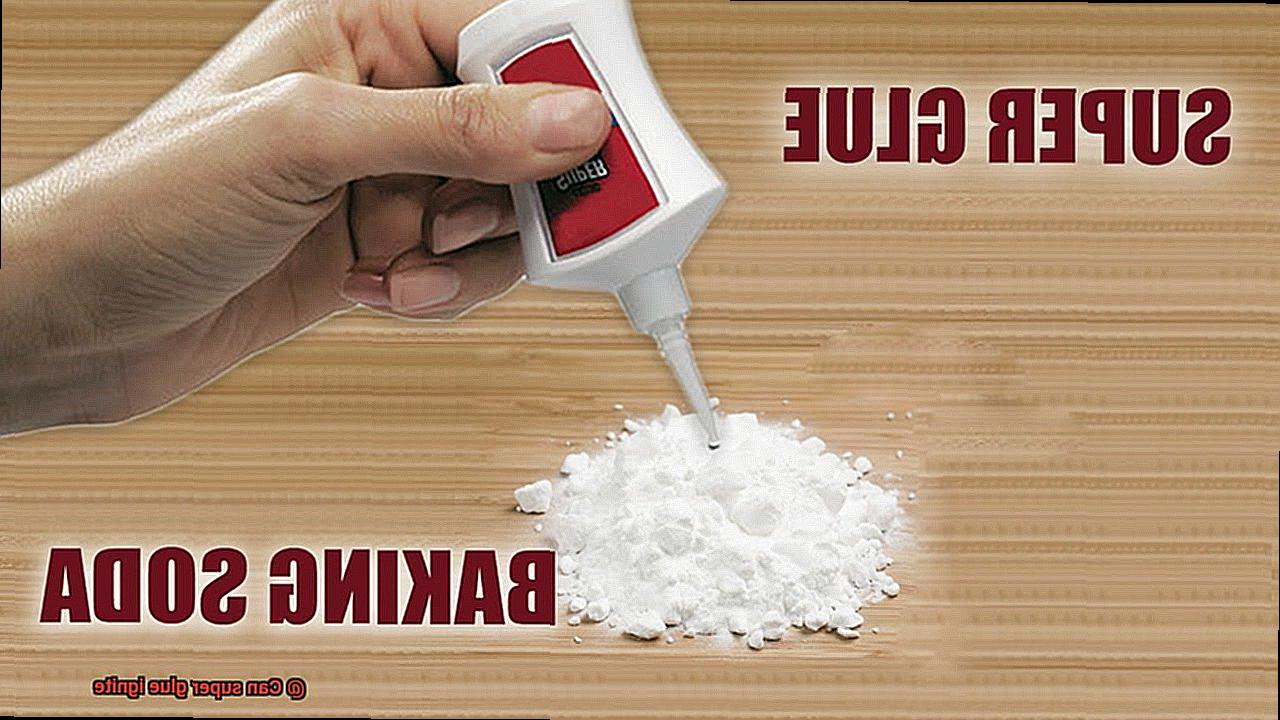
These interactions generate powerful intermolecular forces, resulting in durable bonds between plastics, metals, ceramics, and even skin. So when you’re faced with a broken item, trust super glue to work its magic.
Chemical Resistance:
Super glue is no pushover when it comes to chemical exposure. It can withstand contact with water, oils, acids, and bases without losing its adhesive properties. This resistance makes it suitable for a wide range of applications, from fixing household items to industrial use. Rest assured that your super glue bonds will stay strong even in challenging environments.
Fire Hazards:
While super glue itself is not flammable, it’s important to handle it with caution. The heat generated during the polymerization process can potentially ignite certain substances, especially if they are flammable. Therefore, it’s vital to keep super glue away from open flames or sources of ignition and use it in a well-ventilated area to minimize the risk of fire.
Can Super Glue Cause Fire Hazards?
Its remarkable bonding capabilities make it a go-to solution for a wide range of applications. However, behind its versatility lies a hidden danger. In this article, we will explore the world of super glue and uncover the fire hazards that can arise from its use.
The Heat Factor:
Super glue itself may not be flammable, but it possesses a sneaky characteristic – it generates heat during the curing process. When exposed to moisture or specific substances, this adhesive undergoes an exothermic reaction, releasing heat as it solidifies. While this heat generation is usually harmless, it can become problematic if the glue is applied near flammable materials or in high-temperature environments.
Potential Ignition Sources:
To prevent any fiery mishaps, caution must be exercised when using super glue. It should always be kept far away from open flames, hot surfaces, or electrical equipment that could serve as sources of ignition. Combustible materials such as paper, fabric, or wood should also be stored at a safe distance to avoid accidental fires.
Storage Matters:
Proper storage is key to minimizing fire hazards associated with super glue. It should be stored in a cool and dry place, far from direct heat sources that could trigger spontaneous combustion. Remember, prevention is always better than dealing with a fire emergency.
Extreme Heat and Flames:
Although rare, extreme heat or exposure to an open flame can potentially ignite super glue. In such cases, harmful fumes may be released. Swift action is essential – extinguish the fire using appropriate methods like a fire extinguisher or water (if safe to do so). If necessary, seek immediate medical attention.
Conclusion:
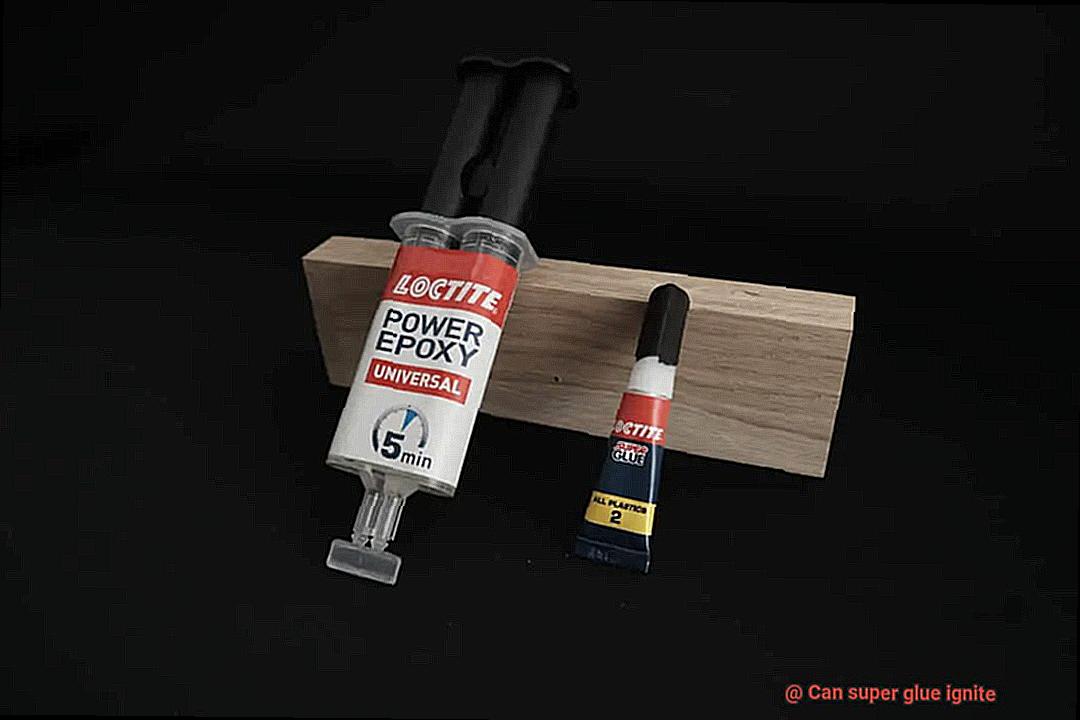
Super glue undoubtedly serves as a valuable adhesive with countless applications. However, it is imperative to acknowledge its potential fire hazards. By following safety precautions, storing it properly, and avoiding potential ignition sources, we can enjoy the benefits of super glue while minimizing the risks. So go ahead and bond away, but always keep safety in mind.
Research has shown that super glue, also known as cyanoacrylate adhesive, is a popular adhesive used for bonding various materials. It is important to note that while super glue itself is not flammable, it can cause fire hazards under certain conditions. The primary risk of fire when using super glue arises from its ability to generate heat during the curing process. When super glue comes into contact with moisture or certain substances, it undergoes an exothermic reaction that releases heat as it hardens.

This heat generation can lead to ignition if the glue is applied near flammable materials or in environments with high temperatures. Therefore, caution should be exercised when using super glue near potential ignition sources such as open flames, hot surfaces, or electrical equipment.
How to Use Super Glue Safely?
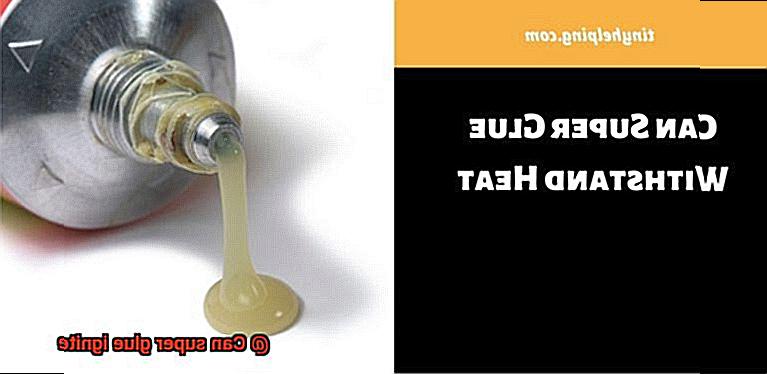
Super glue is a powerful adhesive that can be handy for fixing broken items or bonding materials together. However, it’s important to use it safely to avoid accidents or injuries. In this guide, we will provide you with essential tips on how to use super glue safely.
Read and Follow Instructions:
Before using super glue, always read and follow the instructions provided by the manufacturer. Each brand may have specific guidelines, so familiarize yourself with the product you are using to ensure safe application. The instructions will provide information on proper usage, safety precautions, and any potential hazards associated with the glue.
Wear Protective Gear:
To protect your skin and eyes, wear gloves and safety goggles when working with super glue. This will prevent accidental contact and reduce the risk of irritation or burns.
Super glue bonds quickly, so even a small amount on your skin can cause discomfort or damage. Safety gear acts as a barrier between the glue and your body, ensuring you can work confidently without worrying about any mishaps.
Work in a Well-Ventilated Area:
Super glue can emit fumes that may cause respiratory irritation or dizziness if inhaled in large quantities. To ensure safety, work in a well-ventilated area with open windows or fans to disperse the fumes. Proper ventilation will help minimize exposure to the fumes, allowing you to work comfortably and breathe easily.
Prepare Surfaces Properly:
Clean and dry the surfaces you want to bond before applying super glue. Moisture or dirt can interfere with the bonding process, affecting the strength of the bond. For smooth surfaces, roughen them slightly with sandpaper for better adhesion. By preparing the surfaces properly, you ensure a strong and long-lasting bond that will withstand everyday wear and tear.
Use Small Amounts:
Apply only a small amount of super glue as a little goes a long way. Applying too much glue can lead to excessive bonding, making it difficult to reposition items if needed. Additionally, applying excessive pressure can increase the risk of spills or splatters, which can be messy and potentially cause accidents. By using small amounts and applying gentle pressure, you have better control over the application process, resulting in precise and clean bonds.
Store Safely:
After use, replace the cap tightly to prevent super glue from drying out. Store it in a cool, dry place away from children and pets. Proper storage not only extends the shelf life of the glue but also prevents accidental spills or leakage. Keeping it out of reach of children and pets ensures their safety, as super glue can be harmful if ingested or applied to sensitive areas.
Potential Health Risks of Using Super Glue
The use of Super Glue, also known as cyanoacrylate adhesive, brings with it a range of potential health risks that should not be ignored. These risks include respiratory issues, skin irritation, allergic reactions, and accidental ingestion. It is crucial to understand these risks in order to ensure the safe use of this adhesive marvel.
Firstly, the fumes released by Super Glue can be highly irritating to the eyes, nose, and throat. Prolonged exposure to these vapors can lead to respiratory problems such as coughing, wheezing, and difficulty breathing. Therefore, it is essential to use Super Glue in a well-ventilated area or take breaks between applications to minimize inhalation of these fumes.
In addition to respiratory concerns, Super Glue can cause significant skin irritation. Contact with the adhesive can result in redness, itching, and inflammation of the skin. It may even cause a burning sensation or blisters. To avoid these unwanted effects, it is crucial to prevent Super Glue from coming into contact with the skin and to wash it off immediately if contact occurs.
Another important consideration is the potential for allergic reactions. Some individuals may be sensitive or allergic to the ingredients in Super Glue. Allergic responses can vary from mild symptoms such as itching and rashes to more severe reactions like difficulty breathing and swelling of the face, lips, or tongue. If any of these symptoms occur after using Super Glue, seeking immediate medical attention is vital.
Accidental ingestion of Super Glue should also be avoided at all costs. Swallowing the adhesive can cause nausea, vomiting, and abdominal pain. In more serious cases, it can even lead to a blockage in the digestive system. Therefore, it is crucial to ensure that Super Glue is stored safely out of reach of children and used with caution to prevent accidental ingestion.
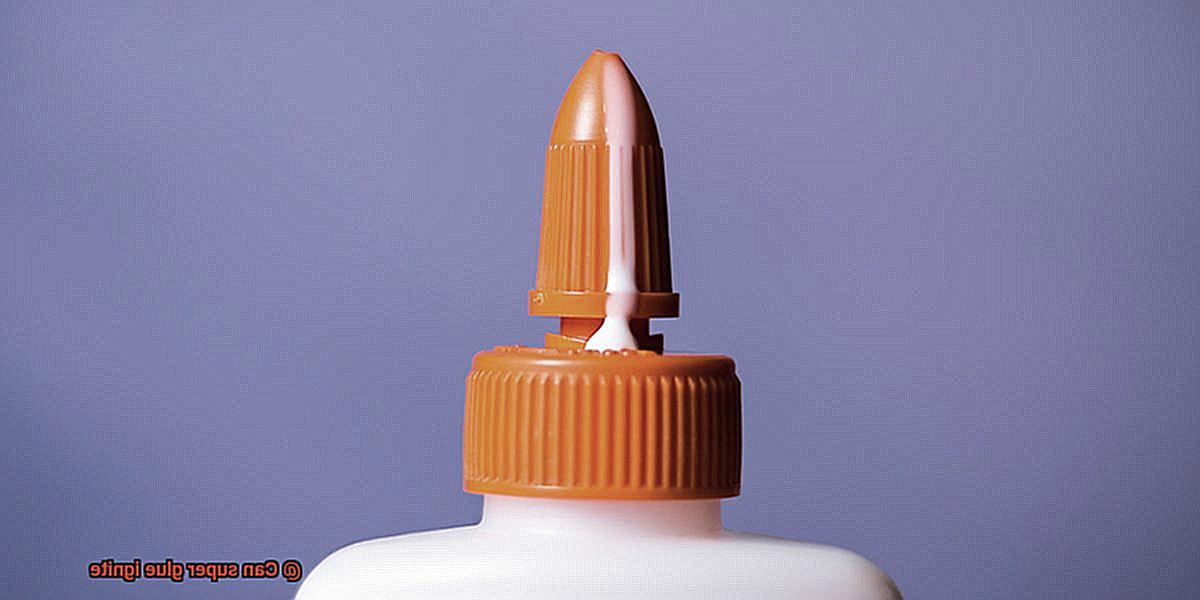
Lastly, it is important to note that Super Glue should never be used on open wounds or broken skin. The adhesive is not designed for medical use and can interfere with the healing process. For wounds that require closure, seeking medical advice and using appropriate medical-grade adhesive under professional supervision is recommended.
To mitigate the potential health risks associated with Super Glue, it is essential to work in a well-ventilated area, wear gloves and protective eyewear to prevent skin contact and eye irritation, and ensure the adhesive is not ingested accidentally. By following these precautions, individuals can safely harness the power of Super Glue without compromising their health.
Safety Tips for Using Super Glue
Super glue is a handy tool for fixing broken items or bonding materials together, but it’s important to use it safely to avoid accidents or injuries. In this blog post, we will explore some essential safety tips for using super glue, so you can bond with confidence.
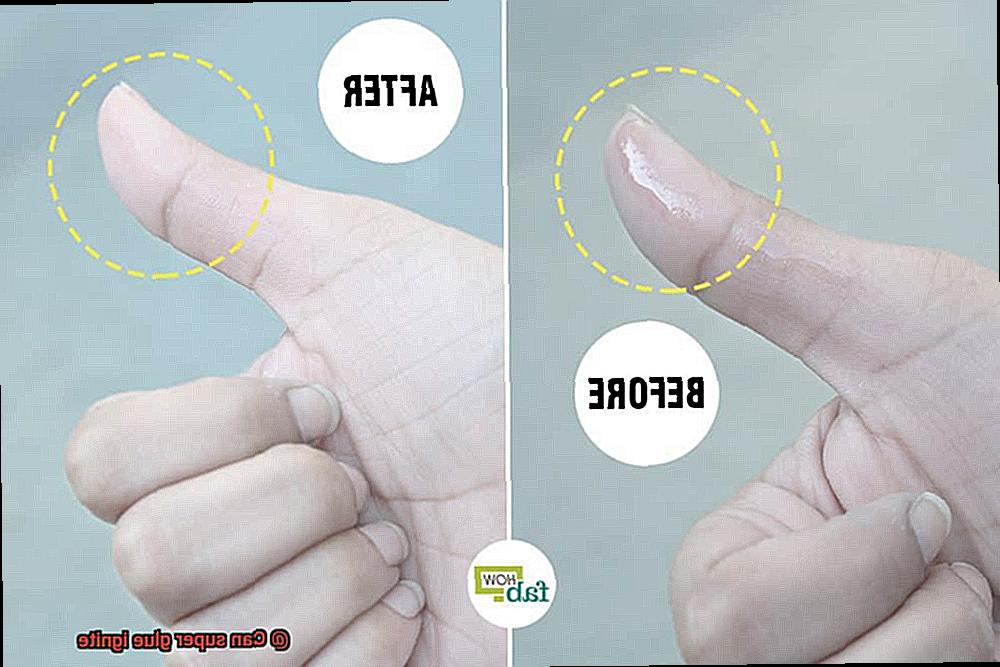
Protect Your Skin:
Super glue can bond quickly and strongly to skin, causing irritation or burns. To prevent this, always wear protective gloves when working with super glue. If you accidentally bond your skin together, don’t panic. Soak the affected area in warm soapy water or use an acetone-based nail polish remover to gently dissolve the bond.
Avoid Eye Contact:
Getting super glue in your eyes can be extremely dangerous and cause severe irritation or damage. If accidental eye contact occurs, immediately flush your eyes with water for at least 15 minutes and seek medical attention right away.
Work in a Well-Ventilated Area:
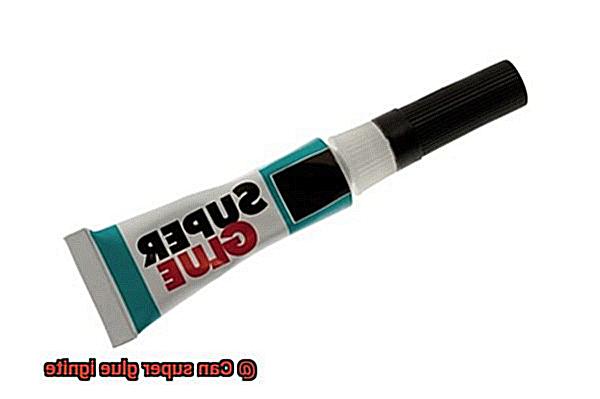
Super glue emits fumes that can cause respiratory irritation, dizziness, or headaches if inhaled in large quantities. Ensure you work in a well-ventilated area by opening windows or using a fan to improve air circulation.
Keep it Away from Children and Pets:
Super glue should always be stored out of reach of children and pets. Ingesting super glue can lead to serious health problems, including gastrointestinal blockage. If accidentally ingested, seek immediate medical assistance.
Follow Manufacturer’s Instructions:
Each brand of super glue may have slightly different application techniques and safety guidelines, so it’s crucial to read and follow the manufacturer’s instructions carefully. Apply the glue sparingly and ensure that the surfaces being bonded are clean and dry for optimal adhesion.
Store Properly:
Store super glue in a cool and dry place, away from heat sources or open flames. Storing it properly will help prevent accidental exposure to high temperatures, which could potentially lead to ignition.
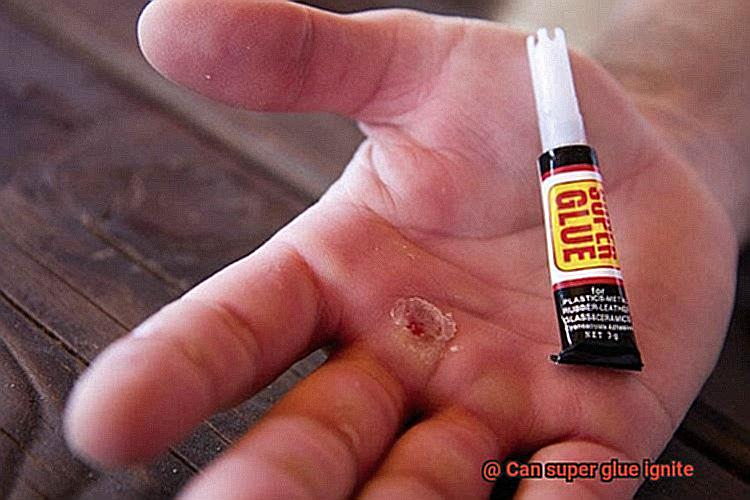
Alternatives to Super Glue
Epoxy Adhesive: The Mighty Duo Unleashed.
When it comes to unmatched strength and versatility, epoxy adhesive takes center stage. This dynamic duo consists of a resin and a hardener, which, when mixed, undergo a chemical reaction that results in an unyielding bond. With its remarkable ability to withstand various environmental conditions, epoxy adhesive is perfect for a plethora of applications.
Cyanoacrylate Adhesive: The Quick Fixer-Upper.
Sometimes all you need is a swift solution, and that’s where cyanoacrylate adhesive shines. Known as “gel” or “liquid stitches,” these adhesives form an instantaneous bond upon exposure to moisture in the air. Ideal for small repairs and medical use, they offer both speed and formidable bond strength.
Water-Based Adhesives: Gentle Giants of Bonding.
For those who seek non-toxic and eco-friendly options, water-based adhesives come to the rescue. Crafted from natural ingredients like vegetable starch or cellulose derivatives, they provide lightweight bonding without compromising safety. While they may not possess super glue’s Herculean strength, they excel in everyday crafts and projects.
Specialty Adhesives: Tailored Solutions for Unique Demands.
Every project harbors unique demands, and specialty adhesives rise to the challenge. Heat-resistant adhesives are designed for materials exposed to extreme temperatures, while flexible adhesives work wonders on rubber or leather. These specialized options ensure your bonds can endure the most demanding conditions.
bvXlCMMS-qE” >
Conclusion
In conclusion, the answer to the question “Can super glue ignite?”
It is a resounding no. Super glue, also known as cyanoacrylate adhesive, is not flammable and therefore cannot catch fire.
Its chemical composition does not contain any volatile substances that can ignite when exposed to heat or flame. So, you can rest assured that using super glue in your everyday projects or repairs is safe and reliable.
Whether you’re fixing a broken vase or bonding metals together, super glue will hold strong without posing any fire hazard.


